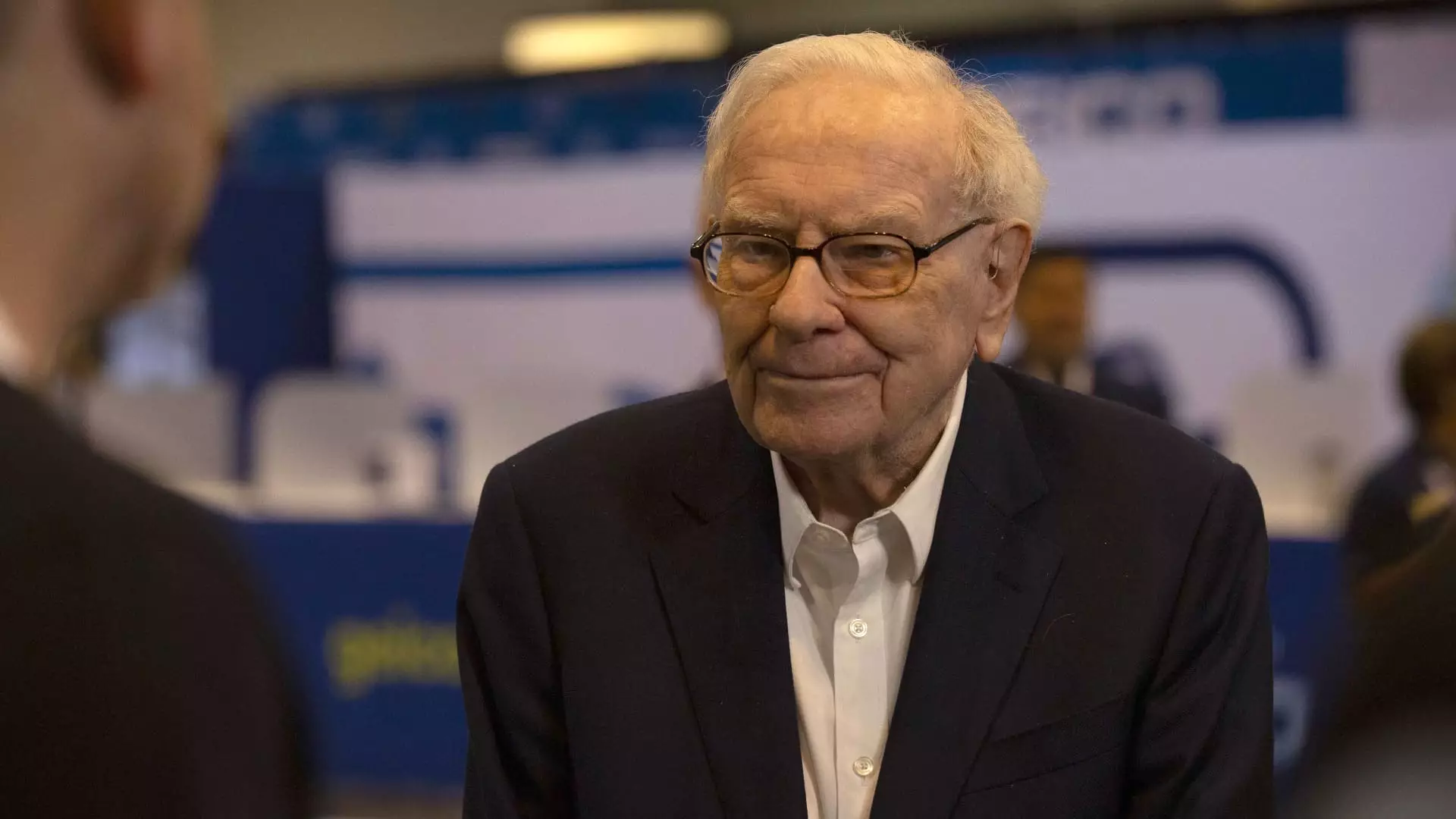Warren Buffett, often heralded as the Oracle of Omaha, has long been regarded as one of the most shrewd investors of our time. His buy-and-hold strategy has made him a monumental figure in the investment world. However, with recent reports indicating that Berkshire Hathaway might sell its real estate brokerage arm, HomeServices of America, we are left to ponder if the revered investor is witnessing a shift in the robustness of the real estate landscape. This potential move could imply not just loss of faith in his industry of choice, but a broader reevaluation of his investment principles—principles that have predominantly held through decades.
The news that Compass is reportedly in advanced talks to acquire HomeServices has caught the attention of many. While HomeServices’ CEO Gino Blefari has denied any sales discussions are underway, the mere suggestion that Buffett may consider exit strategies from real estate speaks volumes. This move challenges the conventional wisdom that has positioned residential real estate as a cornerstone of wealth for countless investors.
Signals of Concern Amidst Prior Triumphs
Buffett’s past investments in newspapers, which he believed were immune to market pressures, provide an instructive analogy. During the 1970s and 1980s, he was steadfast in his commitment to the press, but as digital printing took charge and advertising revenue plummeted, his faith wavered. He was ultimately forced to sell a broad portfolio of newspapers in early 2020, a decision reflecting not simply a loss of profits but a poignant acknowledgment that certain industries can indeed lose their competitive edge.
With HomeServices, we see a similar sentiment brewing. Despite generating $4.4 billion in revenue in 2024, its performance seems lackluster when juxtaposed against the soaring profits from Berkshire’s other subsidiaries. HomeServices reported a staggering net loss of $113 million in 2024, a stark contrast to its historical profitability. This downturn can hardly be dismissed as a mere aberration; it indicates something fundamental may be shifting in the real estate sector that requires urgent attention.
The Challenges of a Changing Market
Remarkably, the challenges besetting HomeServices are reflective of broader systemic issues facing the U.S. housing market. Home prices have continued to defy normalcy, remaining stubbornly high, while inventory levels curtail entry points for prospective buyers. First-time homebuyers and aging homeowners alike are grappling with rising mortgage rates and diminished purchasing power. There is, quite simply, a maze of obstacles that makes navigating today’s housing market increasingly daunting. Pending home sales, having dropped 4.6% in January 2024, exemplify this precarious state and echo the misgivings that may be unfolding in Buffett’s mind.
What aggravates the uncertainty further are ongoing legal challenges facing HomeServices. The recent $250 million settlement signifies not just a fiscal burden but raises ethical questions surrounding brokerage practices. The now-surfacing claims that brokerage firms manipulate commissions to inflate costs for sellers could tarnish the entire industry’s reputation. This not only adds to the reluctance to engage in real estate transactions but also suggests the landscape might not return to its previous buoyancy anytime soon.
A Turning Point or a Temporary Hiccup?
It is, of course, possible that Buffett’s potential pivot might be a momentary hiccup in a long-term strategy. Yet even a skeptical observer cannot help but feel the weight of inevitability in the room. Buffett himself has articulated his reluctance to divest from sectors he once deemed solid. “We’ll sell when we lose faith in management or if our competitive advantage dissipates,” he remarked years ago. The gravity of selling HomeServices could denote a critical turning point not just for them, but for his larger philosophy of investment and resilience in always being “in the game.”
For someone who has successfully navigated several market fluctuations, Buffett’s willingness—or lack thereof—to adapt signals that the time may have come for the real estate sector to significantly reconsider its trajectory. If Buffett, the ultimate optimist, is contemplating a retreat, it may be time for the rest of us to reflect: is the golden age of real estate behind us? And why should we still believe in an industry that has suddenly lost the narrative of perpetual growth? Time may reveal the answers, but for now, uncertainty looms large over the housing market, and the Oracle of Omaha’s faith may be fading.

